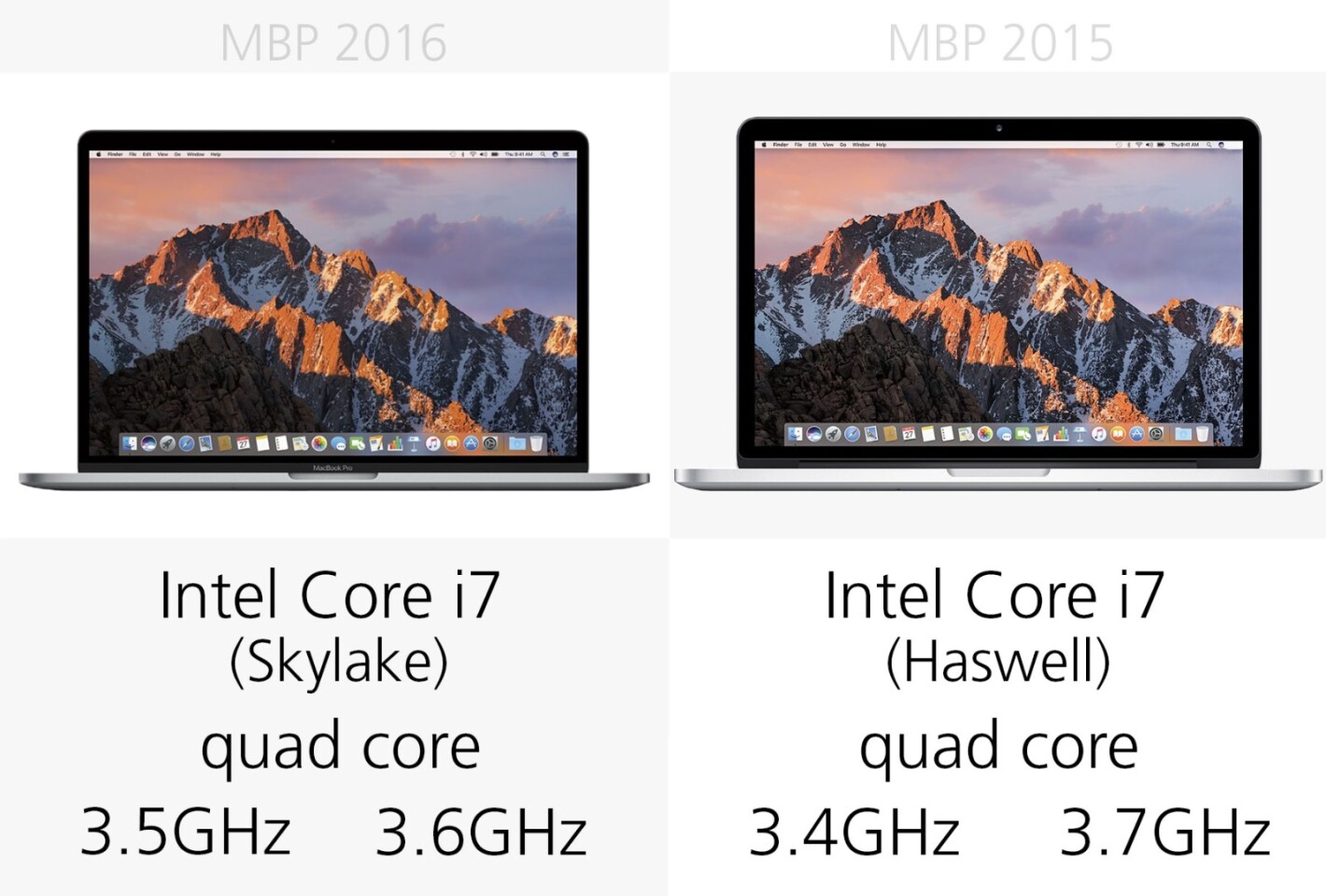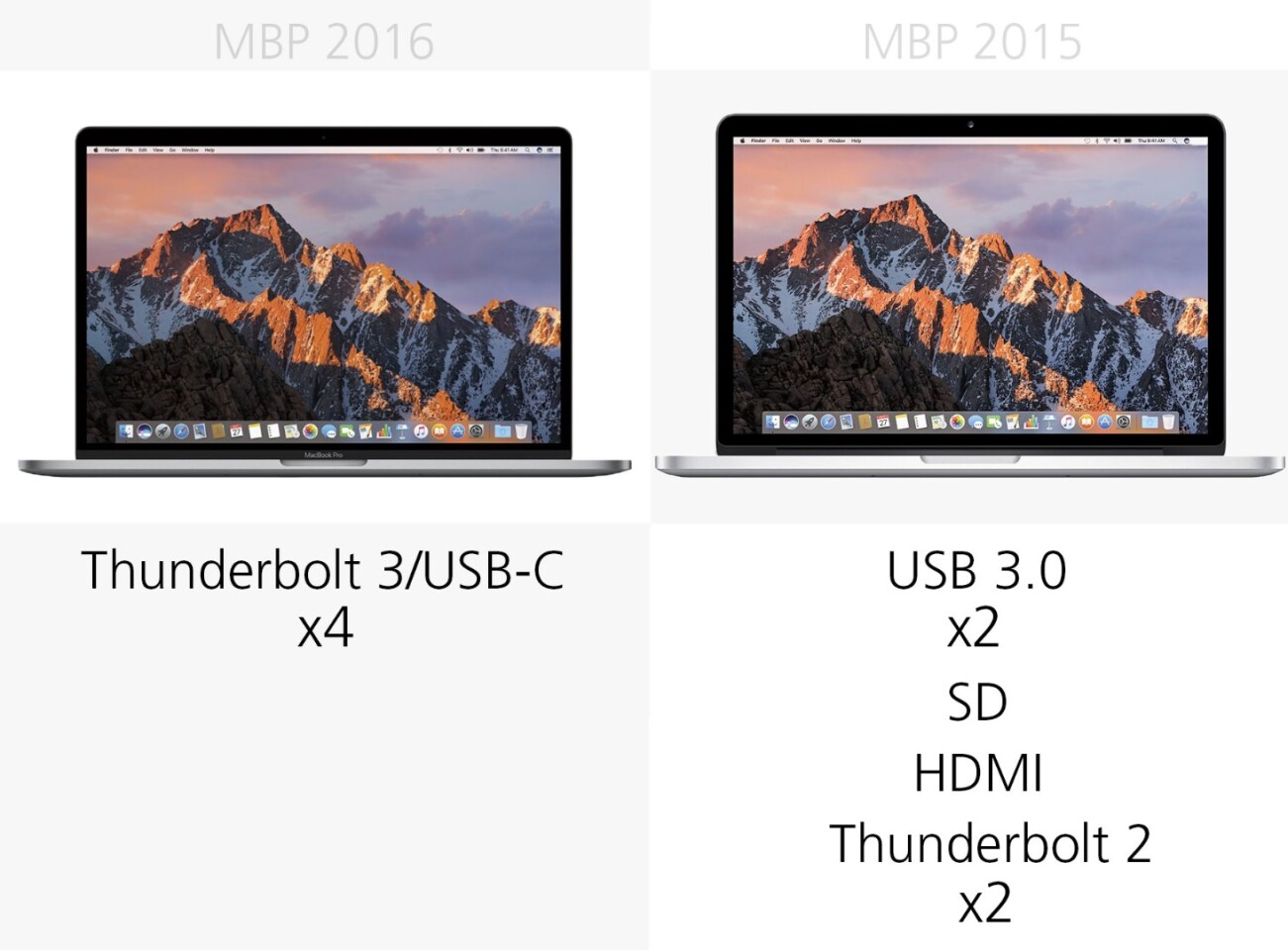While we don't have the stats to prove it, we'd be surprised if Apple didn't sell many more 13-inch MacBook Pros than it does ultra-expensive, less-portable 15-inch models. But if you want the most power and screen real estate – and don't mind ponying up to get it – you might be wondering which generation of these big notebooks to buy (or whether to upgrade). Let New Atlas lend a hand, as we compare the new and old 15-inch MacBook Pros.
Size

It might not look like a radical difference on paper, but the 2016 15-inch MacBook Pro shrinks down in every dimension: 2 percent shorter, 3 percent narrower and 14 percent thinner. That will add up to a machine that, while not exactly "compact," will still feel noticeably smaller than the design from previous years.
Weight

The new MacBook Pro is also 10 percent lighter than last year's model.
Build

The new model's design changes a bit, taking some cues from the 12-inch MacBook, but keeping the aluminum unibody build.
Trackpad

The trackpad is still made of glass and uses Apple's Force Touch tech (doesn't move, but uses pressure-sensitivity and haptic feedback to feel like it does), but it gets much bigger in the new model.
The trackpad in the old model was already very large, though, so we don't recommend upgrading based on this alone.
Colors

You now have a choice of two colors.
Display size

No changes here, as you get the same large 15.4-inch display, which is 38 percent bigger than the 13-inch MacBook Pros.
Display resolution

Resolution holds as well, though Apple improved contrast, color gamut and brightness in the new model, for a more pleasing visual experience.
Touch Bar

All versions of the new 15-inch MacBook get Apple's Touch Bar, a compromise between legacy notebooks and the touchscreens you'll find on Windows machines. Here Apple puts a multitouch strip above the keyboard, where the old Fn keys used to lie. It will bring up contextual shortcuts, depending on which app you're in.
Fingerprint sensor

The Touch Bar also brings Apple's Touch ID fingerprint sensor to the Mac for the first time.
Processor

The 15-inch model still skips the entry-level Core i5 processors and goes with higher-end i7 chips – jumping up to Intel's 6th-gen silicon this time around.
In addition to the variants listed above, you can also order faster models straight from Apple, but no 7th-gen Kaby Lake chips.
Graphics

You still get integrated Intel graphics, corresponding to the processor, in the standard models. You can also custom-order a more expensive one with an AMD Radeon card inside.
RAM

A plentiful 16 GB of RAM is still standard in the 15-inch MBP series.
Storage

Default storage options stay the same, though you can order customized – and very expensive – 1 TB and 2 TB options from Apple's online store.
Ports

If you use SD cards to transfer photos from a camera, or if you use an HDMI cable for video out, you're going to need to buy some adapters (and remember to lug them around with you), as Apple is going all-in on Thunderbolt 3/USB-C.
Is Apple's penchant for minimalism and simplicity out of control, or is this just another example of the company challenging our resistance to change and helpfully nudging us into the future? Your answer to that will likely depend on how much you rely on these traditional connectors.
Standalone charging port

One of those four Thunderbolt/USB-C ports will also be used for charging on the 2016 model. This could be an improvement, though, as you can now charge on either side of the device.
Battery

Apple is estimating an extra hour of battery life in the new model.
Webcam

Your Skype and FaceTime calls will look exactly the same to your friends with the new model.
Headphone jack

Unlike with the iPhone 7, Apple kept the headphone jack in the new model.
Software

Both versions run macOS Sierra.
Release

The new 15-inch MacBook Pro is set to start shipping this week.
Starting price

When Apple launches a next-gen MacBook, it has a habit of jacking up the price over the older models – only to drop it back down a year or three down the road. The company will spout out lines like "we design the best possible product we can, and the price is what it is," but that may not be particularly reassuring for the consumer.
Our recommendation is not to buy either model right now unless a) you really have to, or b) you find a sweet deal on the older model. The US$2,400 starting price for the 2016 MBP is a lot to ask for any notebook – and will likely settle into the older model's pricing after another generation or two – and the lack of a price drop for the 18-month-old 2015 model doesn't exactly make it a bargain.
If you're desperately seeking a powerful 15-inch MacBook and don't have deep reservoirs of finances, we recommend searching eBay and similar places for lightly used versions of the 2015 model. You may end up knocking $500 or more off its retail price, especially now that the new models are launching. Otherwise, with either machine brand new, you're stuck with a lucrative purchase you may regret.
If you're looking at the 13-inch model, you can check out New Atlas' early impressions of the non-Touch Bar model.

























